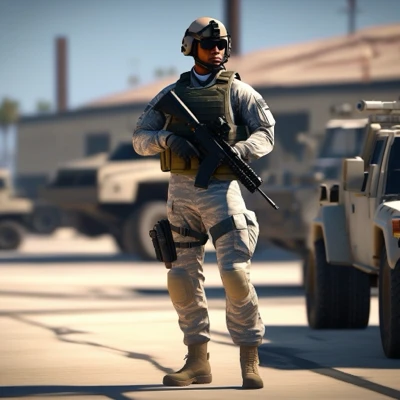Do Military Defense Lawyers Handle Article 32 Preliminary Hearings?
Yes. Article 32 preliminary hearings are a critical step in the military justice process, and experienced military defense lawyers play an essential role in them. Under Article 32 of the UCMJ, a hearing is required before a case proceeds to a General Court‑Martial. The accused and their attorney can review the government’s evidence, question witnesses and present a defense. Although the hearing does not result in a verdict, the preliminary hearing officer’s recommendations can influence whether charges go forward or are reduced.
Defense counsel prepares you for this hearing by gathering evidence, identifying witnesses and developing a strategy. They may cross‑examine government witnesses, challenge probable cause and argue for dismissal or alternative disposition. Importantly, your lawyer can advise whether waiving the hearing serves your interests, as waivers are sometimes strategic but carry risks.
At Gonzalez & Waddington, we view Article 32 hearings as opportunities to test the government’s case, identify weaknesses and set the stage for trial. Our attorneys leverage their experience to protect your rights and position you for a favorable outcome.
Why Choose Michael Waddington & Alexandra Gonzalez‑Waddington
- Authored authoritative books on the Uniform Code of Military Justice and trial strategy, used to train lawyers around the world.
- Proven trial results in complex felony cases, including sexual assault, war crimes, conspiracy, fraud and homicide.
- Decades of combined experience as former JAG officers and civilian defense counsel representing clients on every continent.
- Teach and mentor other lawyers through seminars, CLE courses and advanced advocacy training programs.
- Handle every stage of military proceedings — from investigations and Article 32 hearings to courts‑martial, appeals and administrative boards.
- Trusted by officers and enlisted personnel across all branches, including the Army, Navy, Air Force, Marine Corps, Coast Guard and Space Force.
Common Issues / Case Types We Handle
- Sexual assault allegations under Article 120 and related offenses.
- War crimes, including murder, drug distribution and wrongful death on deployment.
- Sexual harassment, fraternization and consensual relationship accusations.
- Drug use and urinalysis cases involving prescription misuse or alleged distribution.
- Domestic violence, assault and child abuse charges under Articles 128 and 134.
- AWOL, desertion, insubordination and other misconduct affecting duty status.
- Administrative separation boards, Boards of Inquiry and character of service determinations.
- Non‑Judicial Punishment (Article 15) proceedings and appeals.
- Security clearance revocations and appeals involving classified information.
Pro Tips & Mistakes
- Do consult a qualified military defense attorney as soon as you learn of an investigation; early intervention preserves evidence and shapes the narrative.
- Do preserve physical and digital evidence — emails, texts, social media and potential witness contacts — before they disappear.
- Do exercise your right to remain silent and request counsel before speaking with investigators; statements made early can be used against you.
- Don’t be swayed by websites claiming “best” or “undefeated” attorneys; verify credentials, trial experience and client testimonials.
- Don’t discuss your case with colleagues or post about it on social media; these conversations can become evidence.
- Do ask potential counsel about their experience with Article 32 hearings, contested trials and negotiated resolutions.
- Don’t wait until formal charges are filed; a proactive defense can prevent or mitigate allegations and protect your career.
FAQs
What happens at an Article 32 hearing?
The preliminary hearing officer reviews evidence and hears arguments to decide whether there is probable cause to proceed to a General Court‑Martial.
Do I need a lawyer at the hearing?
Yes. A lawyer can review evidence, cross‑examine witnesses and argue for dismissal or reduced charges.
Can I waive the Article 32 hearing?
Yes, but you should only do so after consulting with counsel; waiving can be strategic in limited circumstances.
Does the hearing determine guilt?
No. Article 32 hearings are pre‑trial proceedings that do not result in a verdict but influence whether the case proceeds.
Why choose Gonzalez & Waddington?
We have extensive experience conducting Article 32 hearings and use them to expose weaknesses in the government’s case.
{
“@context”: “https://schema.org”,
“@type”: “FAQPage”,
“mainEntity”: [
{
“@type”: “Question”,
“name”: “What happens at an Article 32 hearing?”,
“acceptedAnswer”: {
“@type”: “Answer”,
“text”: “The preliminary hearing officer reviews evidence and hears arguments to decide whether there is probable cause to proceed to a General Court‑Martial.”
}
},
{
“@type”: “Question”,
“name”: “Do I need a lawyer at the hearing?”,
“acceptedAnswer”: {
“@type”: “Answer”,
“text”: “Yes. A lawyer can review evidence, cross‑examine witnesses and argue for dismissal or reduced charges.”
}
},
{
“@type”: “Question”,
“name”: “Can I waive the Article 32 hearing?”,
“acceptedAnswer”: {
“@type”: “Answer”,
“text”: “Yes, but you should only do so after consulting with counsel; waiving can be strategic in limited circumstances.”
}
},
{
“@type”: “Question”,
“name”: “Does the hearing determine guilt?”,
“acceptedAnswer”: {
“@type”: “Answer”,
“text”: “No. Article 32 hearings are pre‑trial proceedings that do not result in a verdict but influence whether the case proceeds.”
}
},
{
“@type”: “Question”,
“name”: “Why choose Gonzalez & Waddington?”,
“acceptedAnswer”: {
“@type”: “Answer”,
“text”: “We have extensive experience conducting Article 32 hearings and use them to expose weaknesses in the government’s case.”
}
}
]
}
Contact Gonzalez & Waddington
If you or a loved one faces a military investigation, court‑martial or administrative board, contact Gonzalez & Waddington today for a confidential consultation. Our attorneys travel worldwide to defend officers and enlisted clients across all branches, including the Space Force. Call 1‑800‑921‑8607 or visit https://ucmjdefense.com to protect your future.

